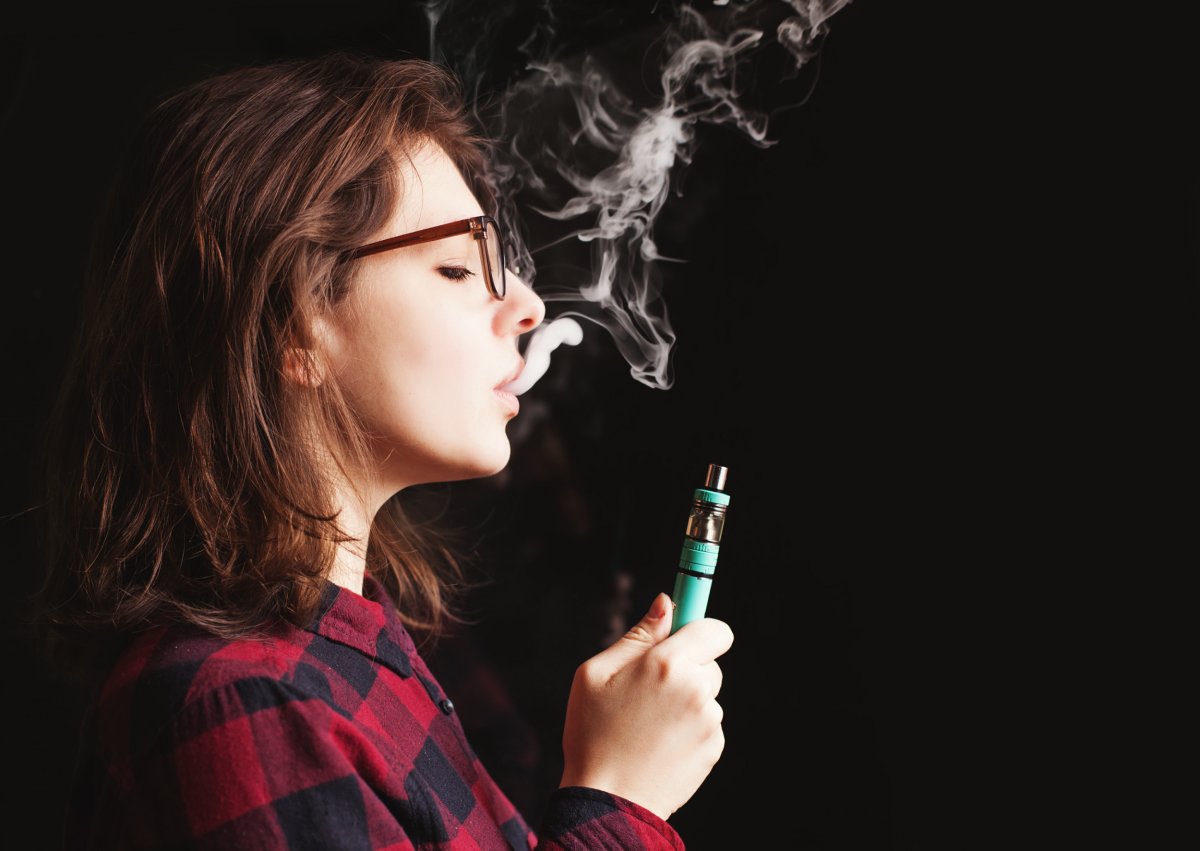Despite efforts from health officials to raise awareness of the potential harms of vaping among young people, social media users are being exposed to a growing amount of pro e-cigarette content. That's according to researchers.
Following a rise in school children saying they have used e-cigarettes—despite the harms nicotine can pose to the developing brain—researchers wanted to gain a better understanding of the part played by social media sites like Instagram. According to the authors of the paper published in the journal Frontiers in Communication, e-cigarettes are portrayed as healthier alternatives to regular cigarettes on such platforms.
"While the long-term health effects of e-cigarette consumption are not fully understood, e-cigarettes can harm the adolescent brain and increase susceptibility to tobacco addiction," the authors warned. Vaping also raises the risk of breathing difficulties, inflammatory responses in the body, while lowering defenses against lung infections and diseases, they added.
Study co-author Julia Vassey of the University of California, Berkeley, said in a statement: "We focused on Instagram because the vaping influencers we interviewed for this study identified Instagram as their most important social media marketing platform."
The team examined a total of 245,894 posts related to vaping shared on Instagram between 2017 and 2019. This marked the period before and after the U.S. Food and Drug Administration unveiled its "The Real Cost" campaign in 2018, which aimed to raise awareness of the potential harm to adolescents from vaping.
Since 2018, the FDA's #TheRealCost hashtag was used around 50 times per month on Instagram. In contrast, hashtags related to vaping were used up to 10,000 times a month or more. The researchers also found there was a three-fold increase in the average number of likes such posts received during this period, and a six-fold spike in the number of posts with more than 100 likes.
Of the total images, over 70 percent featured e-juices and devices. The study also showed a rise in images featuring pods, a "type of discrete vaping device that delivers high concentration of nicotine and is favored by novice e-cigarette users," according to the authors.
The team also carried out a focus group with eight participants aged between 18 to 25 years old at the University of California, Berkeley, and Berkeley City College, or from the surrounding area. They were asked which e-cigarette content they found engaging, with vaping tricks found to be the most impressive. The FDA interventions were viewed negatively.
Five vaping influencers, with between 2,000 and 200,000 Instagram followers, were also interviewed, and provided data on their social media audiences. They argued that vaping is healthier, and were motivated to use Instagram because of the financial benefits.
Analysis revealed that "substantial proportions" of the followers of vaping influences were underage, between the ages of 13 to 17 years old.
Vassey said in a statement: "U.S. public health officials have been calling vaping among youth an epidemic and have been putting a lot of effort into trying to stop this epidemic by introducing #TheRealCost anti-vaping campaign.
"But this stark imbalance in the volume of posts has caused the FDA message to be overwhelmed by marketing from the vaping brands."
Vassey said: "Based on the results, the FDA anti-vaping campaign is not very popular and we saw Instagram user comments disputing the FDA claims of damaging health effects from nicotine and calling the campaign propaganda."
She said: "We're hoping the findings will inform public health regulators about the most popular channels used by vaping influencers to promote vaping content among underage population in order to help counter e-cigarette marketing and slow vaping proliferation among youth.
"This study could also contribute to providing direction for future federal and local public health anti-vaping intervention campaigns."
Karina Newton, head of public policy at Instagram, told Newsweek: "While the discussion of vaping is allowed on Instagram, we do not allow the sale, advertisement, or promotion of these products.
"We recently announced a policy change to no longer allow influencers to post about vaping products if they were paid to do so by a brand. We are also continuing to explore ways we can bring educational material around the health implications of vaping products to places where people are discussing them, for example, on hashtags."
Vassey told Newsweek: "Recently Instagram has moved to ban vaping influencers from promoting branded content. However, It remains to be seen how this Instagram ban will be enforced.
"There are so many organic influencers or those who do not disclose their sponsorship on Instagram that in my opinion it makes it hard to control all this content. In our future research we are planning to look at more Instagram data, which will help us monitor whether and how Instagram implements this enforcement."
She added: "It is important to point out that we are not trying to criticize the FDA efforts. Our current study is not a comprehensive assessment of the effectiveness of their campaign."
"Based on what we learned about youth reactions to the FDA intervention campaign, we are planning to conduct more focus groups where we will try to engage young participants in thinking of intervention strategies that could be appealing to adolescents and that could complement public health efforts."
The study comes after the Trump administration announced a crackdown on e-cigarette flavors popular with children, such as fruit and mint, in a bid to curb "epidemic levels" of youths vaping.
This article has been updated with comment from Instagram and Julia Vassey.

Uncommon Knowledge
Newsweek is committed to challenging conventional wisdom and finding connections in the search for common ground.
Newsweek is committed to challenging conventional wisdom and finding connections in the search for common ground.
About the writer
Kashmira Gander is Deputy Science Editor at Newsweek. Her interests include health, gender, LGBTQIA+ issues, human rights, subcultures, music, and lifestyle. Her ... Read more
To read how Newsweek uses AI as a newsroom tool, Click here.








